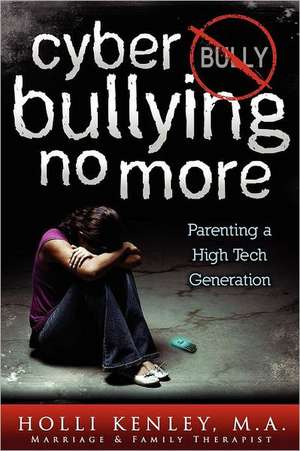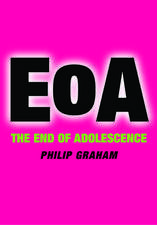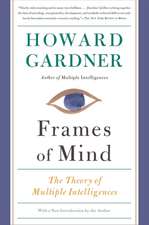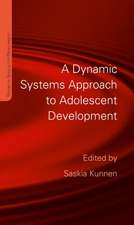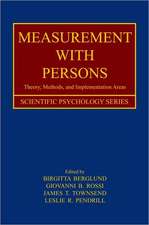Cyber Bullying No More
Autor Holli Kenleyen Limba Engleză Paperback – 11 noi 2011
Preț: 45.14 lei
Nou
Puncte Express: 68
Preț estimativ în valută:
8.64€ • 9.08$ • 7.14£
8.64€ • 9.08$ • 7.14£
Carte disponibilă
Livrare economică 27 martie-10 aprilie
Preluare comenzi: 021 569.72.76
Specificații
ISBN-13: 9781615991358
ISBN-10: 1615991352
Pagini: 30
Dimensiuni: 156 x 234 x 2 mm
Greutate: 0.06 kg
Editura: Loving Healing Press
ISBN-10: 1615991352
Pagini: 30
Dimensiuni: 156 x 234 x 2 mm
Greutate: 0.06 kg
Editura: Loving Healing Press
Descriere scurtă
Notă biografică
Typically, I am an author of clinical works writing to bring healing and hope to others. Of course, there is always a piece of me and of my experiences in them as well. When I sat down and started writing Mountain Air, I did so solely for my own recovering. Writing is a significant tool that I utilize in my healing process. It wasn't until after I finished the very rough and rambling first draft that I felt it may be of benefit to others. Even then, I wasn't sure. It took many more rewrites, time away from the drafts, and the integration of a stronger, more powerful voice into my being which ultimately fueled my desire to share my narrative with you.
Mountain Air, as you have read, is a unique perspective into the topic of relapse and recovering from it. As you know now, I based this work on my own debilitating decline into emotional relapse. I shared with you how returning to my betrayal environment of my youth precipitated the relapse, and I described how the myriad of triggers within those surroundings exacerbated my struggle. I also disclosed the unearthing of a deeply embedded injury from my childhood-a sexual assault-which was at the core of my descent into relapse. Throughout the writing of Mountain Air, it was always my intention to make this book about the emotional and psychological challenges that accompany any kind of relapse-shame, self-blame, guilt-after sustaining a period of wellness, of sobriety, or of integrity to one's way of being. At the same time, I am guessing that there are many readers who are wondering why I did not fully disclose the details of the abuse I endured. I want to explain why. There are two explanations; both are extremely important to me.
First, it is my belief that individuals, even those who share common abuse experiences, heal differently and uniquely. For many, it is extremely helpful and healing to share their experiences in a very public forum and to include the details of their injuries or injustices. Indeed, there are many celebrities as well as non-celebrities who have shared their most private and painful stories on television as well as through other media venues. Their narratives reach out and help many people; they educate and inform others; and hopefully, most importantly, the survivors themselves experience additional healing each time they reveal their histories. For me, and many others like myself, this is not the case. My healing came in the trusting of two therapists and in the process that it took to peel off the layers of injury-a little at a time and over a lengthy period of time. In the safe harbor of experienced, nurturing therapists, I was able to disclose all the intimacies of my pain. However, in the retelling of the abuse, I do relive it and thus, I re-traumatize myself. I also feel as though I give my power over to the betrayers and that I diminish my "voice" in doing so. Therefore, I must value my healing truth. I choose to keep my experiences contained because in doing so, I am respecting myself and my choices, and I am honoring my betrayal experiences with the dignity and grace that serve me well.
Secondly, and as importantly, I do not want to be remembered as a survivor of abuse who endured a litany of injustices. I want my legacy to be one of renewal and of refinement. In my last book, Breaking Through Betrayal: And Recovering The Peace Within, I talk about the difference of being "defined by our betrayal experience" or of being "refined by it". It is paramount that my recovering message to you be one of "moving beyond being defined by our survival identity and embracing the opportunity to become a more effective being and to be more elegant in the process". I want others to remember how I taught them to seek ways to enhance and cultivate new ways of being, and that I encouraged and motivated them to act upon those choices.
Visit my website www.HolliKenley.com
Mountain Air, as you have read, is a unique perspective into the topic of relapse and recovering from it. As you know now, I based this work on my own debilitating decline into emotional relapse. I shared with you how returning to my betrayal environment of my youth precipitated the relapse, and I described how the myriad of triggers within those surroundings exacerbated my struggle. I also disclosed the unearthing of a deeply embedded injury from my childhood-a sexual assault-which was at the core of my descent into relapse. Throughout the writing of Mountain Air, it was always my intention to make this book about the emotional and psychological challenges that accompany any kind of relapse-shame, self-blame, guilt-after sustaining a period of wellness, of sobriety, or of integrity to one's way of being. At the same time, I am guessing that there are many readers who are wondering why I did not fully disclose the details of the abuse I endured. I want to explain why. There are two explanations; both are extremely important to me.
First, it is my belief that individuals, even those who share common abuse experiences, heal differently and uniquely. For many, it is extremely helpful and healing to share their experiences in a very public forum and to include the details of their injuries or injustices. Indeed, there are many celebrities as well as non-celebrities who have shared their most private and painful stories on television as well as through other media venues. Their narratives reach out and help many people; they educate and inform others; and hopefully, most importantly, the survivors themselves experience additional healing each time they reveal their histories. For me, and many others like myself, this is not the case. My healing came in the trusting of two therapists and in the process that it took to peel off the layers of injury-a little at a time and over a lengthy period of time. In the safe harbor of experienced, nurturing therapists, I was able to disclose all the intimacies of my pain. However, in the retelling of the abuse, I do relive it and thus, I re-traumatize myself. I also feel as though I give my power over to the betrayers and that I diminish my "voice" in doing so. Therefore, I must value my healing truth. I choose to keep my experiences contained because in doing so, I am respecting myself and my choices, and I am honoring my betrayal experiences with the dignity and grace that serve me well.
Secondly, and as importantly, I do not want to be remembered as a survivor of abuse who endured a litany of injustices. I want my legacy to be one of renewal and of refinement. In my last book, Breaking Through Betrayal: And Recovering The Peace Within, I talk about the difference of being "defined by our betrayal experience" or of being "refined by it". It is paramount that my recovering message to you be one of "moving beyond being defined by our survival identity and embracing the opportunity to become a more effective being and to be more elegant in the process". I want others to remember how I taught them to seek ways to enhance and cultivate new ways of being, and that I encouraged and motivated them to act upon those choices.
Visit my website www.HolliKenley.com
